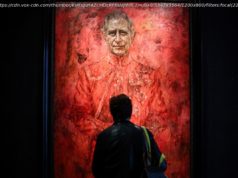Here are the 2020 contenders for fiction, nonfiction, poetry, history and biography.
Fifteen books were recognized as winners or finalists for the Pulitzer Prize on Monday, in the categories of fiction, general history, biography, poetry and general nonfiction.
In his latest novel, the “Underground Railroad” writer fictionalized the story of a Florida school where dozens of black boys were tortured and buried in a secret graveyard. “Were Whitehead’s only aim to shine an unforgiving light on a redacted chapter of racial terrorism in the American chronicle, that would be achievement enough,” wrote our reviewer. But Whitehead “applies a master storyteller’s muscle not just to excavating a grievous past but to examining the process by which Americans undermine, distort, hide or ‘neatly erase’ the stories he is driven to tell.
Finalist: “The Dutch House,” by Ann Patchett
This novel explores the dynamics of a blended family living in a glass house outside Philadelphia in midcentury. “I can’t pluck out one sentence worth quoting, but how effective they are when woven together — these translucent lines that envelop you like a spider’s web,” wrote our reviewer. “It can feel old-fashioned: her style, her attachment to a very traditional kind of storytelling,” but “like the family’s Dutch house, it’s an enduring structure, which gives an added dimension to the references in the text — its way of gesturing toward a lineage.”
Finalist: “The Topeka School,” by Ben Lerner
Lerner’s “exhilarating” novel, also selected by the Book Review as one of the 10 best books of 2019, features a familiar protagonist to his readers, Adam Gordon, this time as a high school student. Lerner’s questions about art and authenticity are carried through to this book, but in “The Topeka School,” “Adam’s faithlessness can no longer be written off as cosmopolitan neurosis. It is instead a symptom of a national crisis of belief, in which structures of understanding crumble and ‘regimes of meaning collapse into the spread.’”
This book explores reparations through the story of a 19th-century woman who sued her captor after surviving a kidnapping and re-enslavement. Her story, wrote McDaniel in an Opinion piece for The Times, “offers lessons for today, both about the impact restitution can make and about the limited power of payment alone.






